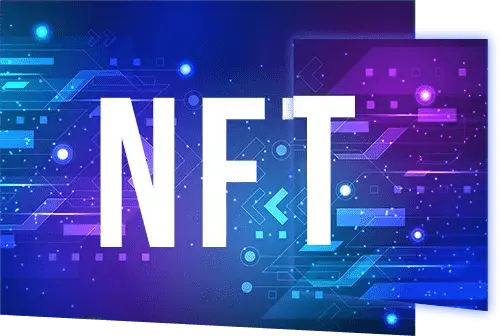- Services
- Hire Developer
- Our Products
- Insights
- Our Company
Leverage Smart Contract Development For These Real World Use Cases

Smart Contracts are self-executing agreements wherein the terms and conditions get encoded into a set of instructions written in a computer language. They provide a tamper-proof and transparent way to conduct transactions and enforce agreements, potentially reducing transaction costs, increasing security, and improving the overall efficiency of the process.
Smart Contracts are becoming increasingly common in industries such as finance, supply chain, real estate, and gaming, unlocking a range of new opportunities.
Smart Contract development has numerous potential applications, including but not limited to these use cases:
Defi: Decentralized finance is one of the most popular use cases for Smart Contracts. DeFi is a rapidly growing area that uses Smart Contracts to revolutionize the traditional financial system. These Smart Contracts can automate the lending, borrowing, and payment processes. They are also vital for yield farming and Decentralized Exchanges(DEXs).
Supply Chain Management: Supply chain management involves tracking goods and products from the origin to the destination. These Smart Contracts can automate supply chain processes such as inventory management, shipping and receiving, and payments. They ensure that inventory levels are kept up-to-date and accurate. They increase efficiency and reduce the risk of fraud. Smart Contracts enforce compliance with regulations, such as environmental regulations, labour laws, and safety regulations.
Digital Identity Management: Smart Contracts can manage and verify digital identities on a blockchain network, allowing for secure and transparent identity verification without a central authority. They ensure that identity verification and management rules are enforced automatically and cannot be altered, providing a tamper-proof solution for identity management. By using Smart Contract development for digital identity management, users will have greater control over their personal information. They can choose who has access to their details. Businesses and organizations can streamline their identity verification processes and reduce the risk of fraud.
Gaming: Smart Contracts enable the players to do transactions such as buying and selling items. It also allows users to perform game-specific actions. They can automate various functions in a game, such as the distribution of rewards and in-game currency, the resolution of disputes, and the transfer of virtual assets between players. They can create a more fair and transparent gaming experience, as all rules and transactions get recorded on a public ledger that is auditable and tamper-proof.
Real Estate: The real estate industry stands to gain considerable advantages from the implementation of Smart Contract development. These include management of property ownership, transfer titles, and draft rental agreements while mitigating the risk of fraud and ensuring all parties involved have a comprehensive understanding of the terms and conditions.
Healthcare: In healthcare, Smart Contract development can be used to securely manage and track the exchange of medical records, protect patients' personal information, automate the processing of insurance claims, and more. They have the potential to improve the efficiency and transparency of healthcare processes and enhance patient trust in the industry. They can track and manage the supply chain of pharmaceutical products, ensuring their authenticity and reducing the risk of counterfeit drugs. They can also manage the recruitment processes, track patient outcomes, and securely store trial data.
Government: Governments utilizeSmart Contractsfor several objectives, including elections, taxation, permitting and licensing, public record-keeping, and procurement. Additionally, governments could utilize Smart Contract development to streamline the tax collection process and monitor the dispersal of tax income. They can securely store and administer public records, such as land registries and identification records.
Predictive Markets: Participants in a predictive market can purchase and sell tokens representing their predictions concerning a particular outcome. Upon the occurrence of the event, the Smart contract executes automatically, enabling token redemption for their respective values. Utilizing Smart Contracts development in predictive markets offers several benefits, like improved efficiency through automated purchasing and selling operations, thereby reducing both the time and cost associated with manual processes. Additionally, predictive markets can be decentralized, allowing for a more democratic and transparent prediction platform.
Insurance: The utilization of Smart Contract development in the insurance sector has proven to be highly beneficial, as it can automate the process of underwriting, claims to process, and policy management, leading to a decrease in time and costs. Furthermore, it ensures the automatic execution of terms of insurance policies when the required conditions are met. Additionally, Smart Contracts are capable of detecting and preventing fraudulent activities.
End Thoughts
Have you considered introducing Smart contracts to your organization? Now is the ideal moment to investigate the capabilities of Smart Contracts.Hire Smart Contract Developersfrom Infograins to create distributed applications and rules that grow with smart contracts.
 info@infograins.com
info@infograins.com




















